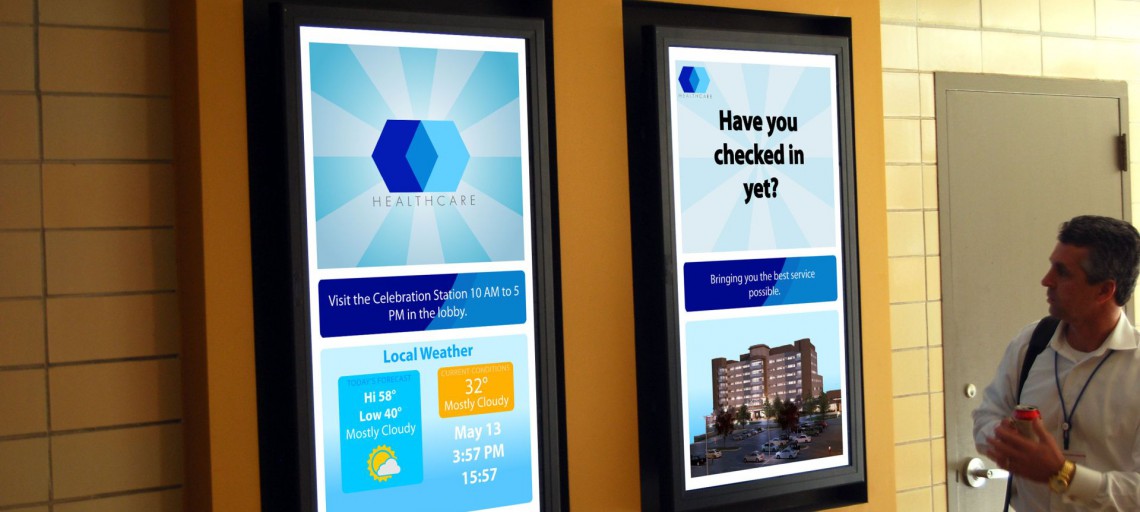
There are many creative and productive ways in which digital signage can be used in the healthcare industry. If you have ever longed for some kind of information while inside a medical institution, then you already understand the need for such use. For example, you may get lost when looking for a patient’s room in a large hospital. Here are some situations where the use of digital menu boards can prove useful.
Medical institutions nowadays cover large areas, and even medical professional sometimes get lost. This means that guests need even better means of finding their way. If patients can find the offices they want quickly, for instance, doctors will not have to deal with many delayed appointments. Members of staff will also quickly track where the required specialists are, which can save lives during emergencies.
While the use of alarms readily alerts people about an emergency, it can lead to confusion. On the other hand, digital menu boards can provide relevant information about the emergency at hand, and the information can be updated to include such details as the exact nature of an emergency, where it is, safest exit routes and maps. People can then make informed decisions on the best course of action to take without creating panic in a healthcare institution.
Some hospitals have started implementing this solution, and others will benefit by following suit. This is whereby patient records are integrated with other relevant information and displayed on menu boards in patient rooms. The details may include things like medical assessments, scheduled tests as well as restrictions and recommendations. According to a report published in WebMD, patients who watched videos before undertaking their procedures were more aware of their details and recovered faster. It also helps to reduce their anxiety.
Providing patient-tailored information also helps to brand a hospital as patient-friendly.
Another thing that makes a hospital be viewed as patient-friendly is the type of entertainment it offers at the waiting room. Waiting times may appear apprehensively long unless the patients get appropriate information and entertainment. Instead of permanently tuning a television set to a particular channel, the TV can be used to provide information that suits the type of patients waiting there. This is even more important in the pediatrics section where children will get entertaining and educative programs.
An effective system does not only consider caregivers and patients but also family and friends. Addressing the concerns that people in the waiting room have will make them more knowledgeable, lower their anxiety and reduce the perception of waiting time.
Medical institutions can use this avenue to advertise various things, including medicines available at the pharmacy, menu in the cafeteria, affiliated insurance providers and even other nearby businesses.
Considering the large volume of information that is transmitted and exchanged in the healthcare industry, digital signage can prove very useful. This is especially important because the information can be updated in real time from a central location. The system can seamlessly integrate multiple channels to provide more comprehensive information, including video, still images, data and different online content. Depending on the location of a screen, it can be either passive or interactive.